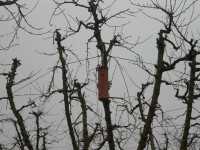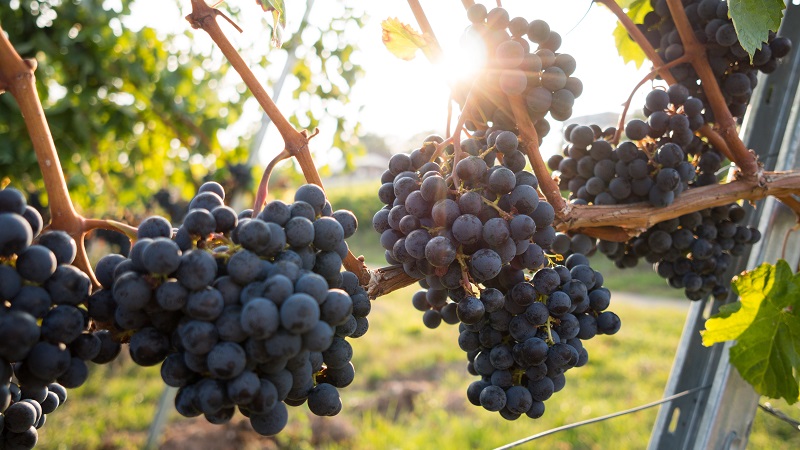Stone Fruit Grower Is IPM Innovator

Only one California grower, SunWest Fruit Company, has twice been honored by the state’s Department of Pesticide Regulation with an IPM (Integrated Pest Management) Innovator Award for their leadership in reducing pesticide use.
The first time, in 2008, SunWest was honored in conjunction with its partner, Fresh Sense, for building the market for sustainably produced fruit and motivating other growers to adopt more environmentally friendly pest management practices.
Just three years later, in 2011, SunWest was honored again, this time for its individual contributions to pesticide use. How does one vertically integrated company — SunWest also packs and ships the peaches, plums, nectarines, cherries, and citrus it grows — become such a standout? By planning ahead, says ranch manager Brian Fien, and then keeping careful track of their program.
“Years ago we looked into the future and saw the regulations coming down the pipeline in terms of air and water quality,” he says, adding that they then began implementing a rigorous IPM program. ““We were already IPM-oriented, and doing many sustainable farming practices, we just were not documenting or tracking it.”
Water Issues
Fien said they knew they would come under scrutiny by the state because they farm in the San Joaquin Valley town of Parlier, and because of the valley’s air quality problems, a new layer of special restrictions were instituted. Not only that, but they farm on acreage that is classified as a groundwater protection area, so any leaching or runoff of certain crop protection materials or nitrogen could be a problem.
“Any herbicide we used that was an issue for CDPR was eliminated,” he says, adding that they were fortunate that a lot of newer, softer herbicides had come along, such as Matrix (DuPont Crop Protection), Prowl (BASF), and Alion (Bayer CropScience). “I don’t know if it would have worked easily for everyone, but for us it wasn’t too bad.”
Another way they protect the watershed is through the use of biofilters. One of their citrus ranches in the Sierra Nevada foothills is adjacent to a creek that feeds the Kings River, so they strategically placed organic matter within the creek, to filter the runoff before going directly into the river.
Holistic Approach
As for their stone fruit, they put 100% of their acreage under pheromone disruption for protection from the most potentially damaging pest, Oriental fruit moth. The puffers emit pheromones every 15 minutes, allowing them to reduce their insecticide sprays significantly. Fien says they only resort to spraying when pest pressure threatens to exceed the economic threshold as determined by the University of California Statewide IPM Program.
Fien is understandably proud of their environmental stewardship, and there are economic benefits as well. They were one of the first stone fruit growers to be certified by Protected Harvest, a nonprofit organization that promotes sustainable agricultural practices, and sold under Zeal, an eco-label targeting socially and environmentally conscious consumers. The fruit is sold at a premium at such stores as Whole Foods Market.
“The Zeal label and the Protected Harvest program illustrate to the consumer that what’s in the box was produced with eco-friendly practices,” he says. “It says ‘safety,’ and gives them an alternative to organic. It’s more of a holistic approach.”









